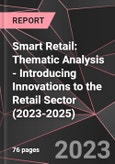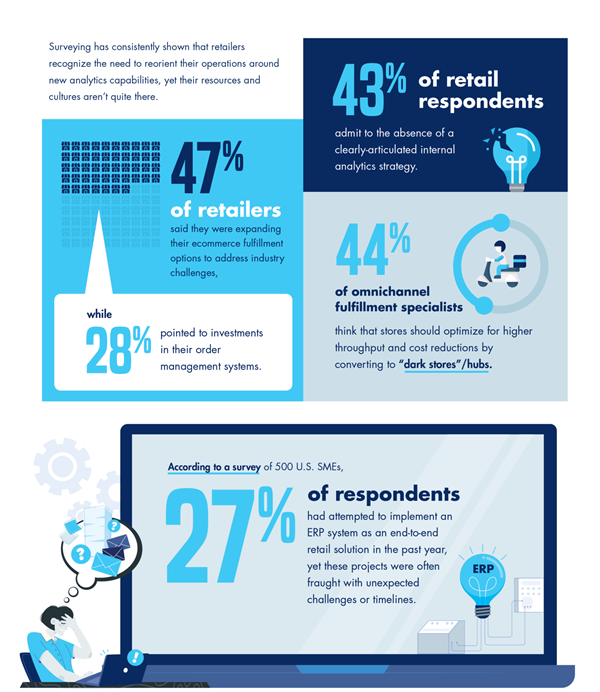The report “Smart Retail: Thematic Analysis - Introducing Innovations to the Retail Sector (2023-2025)” is approximately 22,000 words (76 pages). It provides case studies of VC-backed retail technology startups and examines retailer adoption.
Published not long after Bed Bath & Beyond filed for bankruptcy protection and announced the closure of all its stores, following multiple failed turnaround attempts, this report delivers timely guidance for retail innovators looking to sustain an economically vital sector. The analysis is informed by detailed case studies of leading retail technology startups, ensuring that findings are accurate and relevant.
Retail technology providers’ recommendations focus on:
- Customizing pitches and presenting case studies with look-alike customers
- Demonstrating clear paths to profit generation or cost savings
- Implementing pilot tests and flexible contracts to facilitate technology adoption
- Highlighting measurable environmental, social, and governance (ESG) impacts
- Leveraging network effects and consumer brand relationships
By truly understanding all of the incentives, variables, and dynamics at play, retail technology providers and retailers can work together more effectively to drive progress and fortify the retail sector even in turbulent times. This report also provides an objective, third-party evaluation of investment opportunities.
Report Highlights:
- The primary research process directly engaged founders and experts from across Smart Retail in comprehensive, roughly hourlong Zoom interviews. The report has carefully documented their unique value propositions as well as their strategic advice for other innovators, especially when it comes to go-to-market strategies and product/market fit.
- Crunchbase financial data shows that these retail technology providers have all raised funding in the range of $3.8M-$60M. At the time of publication, the average total funding amount of participating startups was approximately $28.73M. Their technologies and growth stages vary.
- Founders’ unique value propositions ranged from a platform that connects brands with retailers and marketplaces to a frontline employee incentives management platform and a maker of dark store nano-fulfillment centers. Despite the diverse nature of these startups’ solutions, many founders encountered similar hurdles and developed similar tactics when establishing partnerships with major retailers.
- The report also visualizes over 20 quantitative insights as infographics at the conclusion. Coupled with the creatively presented startup case studies, this helps to ensure that insights will resonate throughout organizations and inspire change.
This report will provide comprehensive answers to the following questions:
- What are the most effective ways for retail tech startups to approach retailers?
- How are VC-funded, high-growth startups carving out unique value propositions?
- How will market conditions and consumer trends affect Smart Retail growth?
- What are major retailers’ technology adoption practices?
- Why do retail innovation labs and other retail IT projects sometimes fail?
- How might the flywheel effect concept influence retailers and their investors?
Table of Contents
Companies Mentioned (Partial List)
A selection of companies mentioned in this report includes, but is not limited to:
- 1MRobotics
- BrainBox AI
- Cymbio
- Renovai
- SparkPlug
- Vibes
- Ahold Delhaize
- Amazon
- Made.com (Next plc)
- New Look
- Sephora
- Walmart









